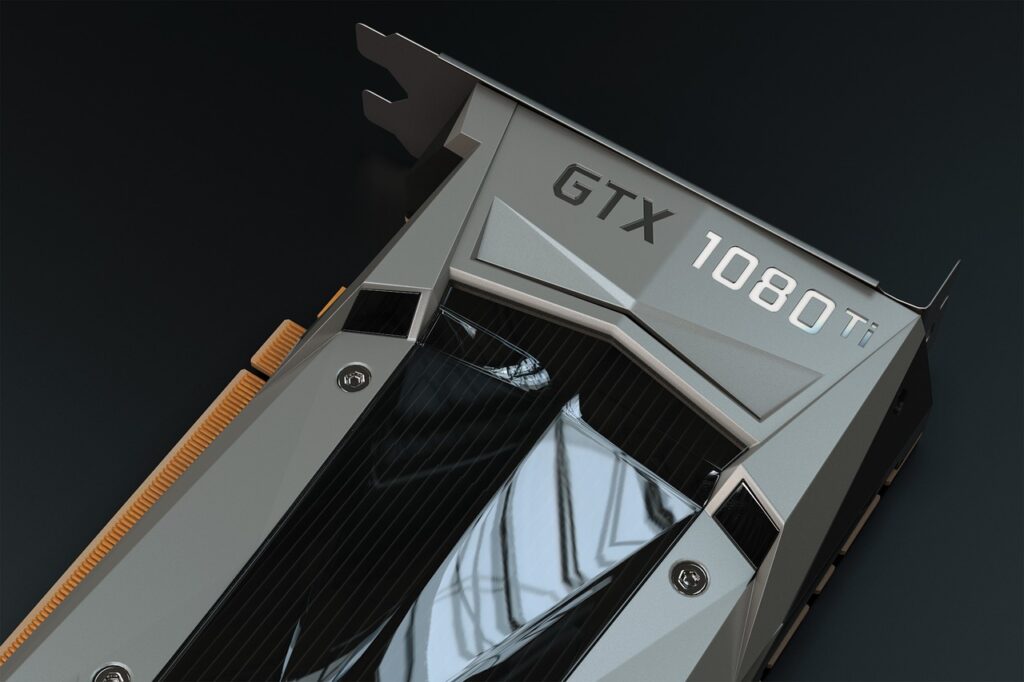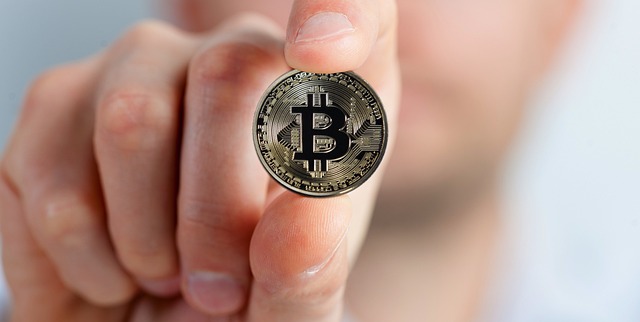DeFi’s Transformative Impact: Benefits for All
DeFi’s Transformative Impact: Benefits for All

Decentralized Finance: Revolutionizing the Financial Landscape for Everyone
Decentralized finance, also known as DeFi, is rapidly transforming the financial landscape for individuals worldwide. By leveraging blockchain technology and eliminating the need for intermediaries, DeFi platforms are revolutionizing how financial services are accessed and utilized. Unlike traditional financial systems, DeFi operates in a decentralized manner, giving users greater control over their funds and removing the hurdles of traditional banking systems.
The accessibility provided by DeFi is one of its most striking features. With traditional financial systems, individuals often face barriers such as limited access due to geographical location, high fees, and complex procedures. However, DeFi platforms offer a solution, enabling anyone with an internet connection to participate in the financial ecosystem. By eliminating intermediaries and their associated fees, DeFi opens up financial services to individuals who were previously excluded, empowering them to manage their funds, explore investment opportunities, and access a range of financial services that were once reserved for a select few.
1. Understanding the Basics of DeFi: A brief introduction to the concept of decentralized finance and how it differs from traditional financial systems.
Decentralized Finance, also known as DeFi, is a revolutionary concept that is transforming the traditional financial landscape. Unlike the conventional financial systems that rely on centralized intermediaries such as banks and financial institutions, DeFi operates on a decentralized network, primarily based on blockchain technology. This decentralization eliminates the need for middlemen, enabling individuals to interact directly with financial applications and services.
One of the key differences between DeFi and traditional finance is the removal of barriers to entry. In traditional financial systems, access to banking services and financial products is often limited to those who meet certain criteria, such as a minimum account balance or a credit history. In contrast, DeFi offers financial services that are accessible to anyone with an internet connection, irrespective of their geographical location or financial background. This inclusivity empowers individuals who were previously excluded from the traditional financial system, opening doors to banking services, loans, and other financial opportunities.
2. Accessibility for All: Exploring how DeFi eliminates the need for intermediaries, making financial services more accessible to individuals who were previously excluded.
Decentralized Finance (DeFi) has emerged as a groundbreaking concept that disrupts the traditional financial system by eliminating the need for intermediaries. This revolution not only transforms the landscape of finance but also makes financial services more accessible to individuals who have been historically excluded from traditional banking systems.
In traditional finance, individuals often face multiple barriers when accessing financial services. They are required to go through lengthy processes, provide extensive documentation, and undergo credit checks. These requirements can be daunting, especially for those who lack a formal credit history or live in underserved communities. However, DeFi breaks down these barriers by operating on blockchain technology, which enables direct peer-to-peer transactions without the involvement of intermediaries such as banks or financial institutions. This decentralized nature of DeFi empowers individuals, allowing them to access financial services directly and without discrimination. Whether it’s sending and receiving money, accessing loans, or investing, DeFi opens up a world of opportunities for those who were previously excluded from the traditional financial system.
3. Empowering the Unbanked: Highlighting how DeFi enables financial inclusion by providing banking services to the unbanked population worldwide.
DeFi is revolutionizing the financial landscape by empowering the unbanked population worldwide. Traditional banking systems have often excluded individuals who lack access to basic financial services. However, with the advent of decentralized finance, these barriers are being broken down, allowing the unbanked to participate in the global economy.
Through DeFi, individuals have the opportunity to engage in banking services such as savings, lending, and investment, without the need for a traditional bank account. By utilizing blockchain technology and smart contracts, DeFi platforms provide a secure and transparent environment for these transactions. This means that individuals who were previously underserved by traditional banking systems can now access financial tools and services that were once out of their reach. Whether it’s accessing loans for small businesses or saving money for future expenses, DeFi is laying the foundation for financial inclusion on a global scale.
4. Lowering Costs: Discussing how decentralized finance reduces transaction fees and eliminates unnecessary overhead costs, benefiting both users and businesses.
Decentralized finance, also known as DeFi, has emerged as a promising disruptor in the financial landscape, introducing cost-saving solutions that benefit both users and businesses. One of the key advantages of DeFi is its ability to significantly reduce transaction fees. Unlike traditional financial systems that rely on intermediaries and centralized authorities, DeFi operates on blockchain technology, which eliminates the need for costly middlemen. By cutting out these intermediaries, DeFi platforms can streamline financial transactions, making them more efficient and cost-effective.
In addition to reducing transaction fees, decentralized finance also eliminates unnecessary overhead costs that are typically associated with traditional financial systems. With DeFi, there is no need for physical infrastructure, such as banks or branch offices, which can be expensive to build and maintain. Furthermore, DeFi platforms leverage smart contracts, which are self-executing agreements written in code. These automated contracts enforce the terms of agreements without the need for intermediaries, saving businesses from incurring additional administrative and legal costs. As a result, DeFi offers a leaner and more cost-efficient alternative to traditional financial systems, benefiting both individuals and businesses alike.
5. Faster Transactions: Explaining how DeFi speeds up the process of financial transactions, enabling near-instantaneous transfers and settlements.
DeFi has revolutionized the financial landscape by significantly speeding up the process of financial transactions. Unlike traditional financial systems that rely on intermediaries, DeFi allows for near-instantaneous transfers and settlements. This means that individuals and businesses no longer have to wait for days or even weeks to receive funds or complete transactions.

One of the key reasons behind the speed of DeFi transactions is the use of blockchain technology. By leveraging the decentralized nature of blockchain, DeFi platforms are able to eliminate the need for intermediaries and enable peer-to-peer transactions. This direct interaction not only removes unnecessary delays but also reduces the risk of human errors or manipulation that can occur in traditional financial systems. With near-instant transaction speeds, DeFi empowers individuals and businesses to make timely decisions and seize opportunities in a rapidly changing financial landscape.
6. Transparency and Security: Examining how blockchain technology enhances the security of DeFi platforms and ensures transparent and immutable record-keeping.
Decentralized finance (DeFi) platforms have gained enormous popularity in recent years due to their transparency and security features, made possible by blockchain technology. Unlike traditional financial systems where trust is placed in intermediaries, DeFi operates on a public and immutable ledger, known as a blockchain, which records every transaction. This transparency allows anyone to verify the integrity of the system and ensures that no single entity has control over the data.
One of the key advantages of blockchain technology is the enhanced security it brings to DeFi platforms.

7. Smart Contracts: Exploring the use of smart contracts in DeFi and how they automate and enforce the terms of agreements without the need for intermediaries.
Smart contracts are a fundamental building block of decentralized finance (DeFi) platforms, revolutionizing the way financial agreements are carried out. These computer programs are self-executing contracts with the terms of the agreement directly written into code. By eliminating the need for intermediaries such as banks or lawyers, smart contracts provide a level playing field for users while increasing efficiency and reducing costs.
One of the key benefits of smart contracts in DeFi is their ability to automate and enforce agreements without any reliance on intermediaries. Traditional financial systems often involve multiple parties and complex legal processes to ensure the terms of an agreement are fulfilled. With smart contracts, however, the code itself acts as the arbitrator, executing the terms of the agreement automatically when pre-set conditions are met. This not only streamlines the process but also reduces the risk of human error or manipulation, providing a more secure and transparent environment for financial transactions.
8. Yield Farming and Staking: Discussing the opportunities for users to earn passive income through yield farming and staking on DeFi platforms.
Yield farming and staking have emerged as lucrative opportunities for users to earn passive income within the decentralized finance (DeFi) space. By participating in these activities on DeFi platforms, individuals can capitalize on their existing cryptocurrency assets and generate additional returns.
Yield farming involves lending out crypto assets to decentralized applications (DApps) in return for rewards or interest. Users essentially become liquidity providers, supplying their digital currencies to DeFi protocols. In exchange, they receive tokens or yield generated by the DApp’s operations. This opens up avenues for users to earn profits by making their crypto holdings work for them, without the need for traditional financial intermediaries.
Staking, on the other hand, involves holding and locking up a certain amount of cryptocurrency to support the operations and security of a blockchain network. By staking their tokens, users participate in the network’s consensus mechanism and earn rewards in the form of additional tokens. Staking provides users with an opportunity to contribute actively to the growth and stability of a blockchain ecosystem while also earning passive income.
These passive income-generating activities have gained significant traction in the DeFi sector, attracting both experienced investors and newcomers to the cryptocurrency space. However, it is important to note that yield farming and staking come with their own risks, including potential losses or vulnerabilities associated with the underlying protocols.

• Yield farming and staking offer users the chance to earn passive income within the DeFi space.
• Yield farming involves lending out crypto assets to DApps in exchange for rewards or interest.
• Users become liquidity providers, supplying their digital currencies to DeFi protocols.
• In return, they receive tokens or yield generated by the DApp’s operations.
• Staking involves holding and locking up a certain amount of cryptocurrency to support a blockchain network.
• By staking their tokens, users participate in the network’s consensus mechanism and earn additional tokens as rewards.
• Both yield farming and staking allow individuals to make their crypto holdings work for them without traditional financial intermediaries.
• These activities have gained traction in the DeFi sector but come with risks such as potential losses or vulnerabilities associated with underlying protocols.
• Users should exercise caution, conduct thorough research, and consider risk tolerance before participating.
• With proper understanding and diligence, yield farming and staking can help users maximize returns in decentralized finance.
9. Cross-Border Transactions: Highlighting
Cross-border transactions have long been associated with delays, high fees, and complexities. However, decentralized finance (DeFi) is revolutionizing this landscape by providing a seamless and efficient solution. With DeFi, individuals and businesses can now engage in cross-border transactions with ease, eliminating the need for traditional intermediaries such as banks or remittance services.
One of the key advantages of DeFi for cross-border transactions is its ability to leverage blockchain technology. By utilizing smart contracts and decentralized networks, DeFi platforms enable near-instantaneous transfers across borders. This means that individuals can send and receive money in real-time, without the hassles of delays or intermediaries. Moreover, the transparency and immutability of blockchain ensure that these transactions are secure and tamper-proof. As a result, DeFi not only simplifies cross-border transactions but also promotes trust and efficiency in the global financial ecosystem.
What is decentralized finance (DeFi)?
DeFi is a concept that revolutionizes the financial landscape by eliminating the need for intermediaries and allowing individuals to access financial services directly.
How is DeFi different from traditional financial systems?
Unlike traditional systems, DeFi operates on blockchain technology, offering transparency, security, and automation through smart contracts. It also eliminates unnecessary fees and enables faster transactions.
Who benefits from DeFi?
DeFi benefits everyone, but it particularly empowers individuals who were previously excluded from the traditional financial system, such as the unbanked population worldwide.
How does DeFi provide financial inclusion?
DeFi enables financial inclusion by providing banking services to the unbanked population, giving them access to loans, savings, investments, and other financial tools.
How does DeFi lower costs?
DeFi reduces transaction fees and eliminates unnecessary overhead costs typically associated with intermediaries, benefiting both users and businesses.
How does DeFi enable faster transactions?
DeFi speeds up financial transactions by leveraging blockchain technology, enabling near-instantaneous transfers and settlements.
How does DeFi ensure transparency and security?
DeFi platforms utilize blockchain technology, which enhances security by ensuring transparent and immutable record-keeping, making it difficult for fraudulent activities to occur.
What are smart contracts in DeFi?
Smart contracts are self-executing contracts with the terms of the agreement directly written into the code. They automate and enforce the terms without the need for intermediaries.
How can users earn passive income through DeFi?
Users can earn passive income through yield farming and staking on DeFi platforms. Yield farming involves lending or providing liquidity to earn rewards, while staking involves holding and validating cryptocurrencies to earn rewards.
How does DeFi facilitate cross-border transactions?
DeFi simplifies cross-border transactions by eliminating the need for intermediaries and reducing transaction fees. It allows individuals to send and receive funds internationally with ease.
Todays Featured Product:
Buy, exchange and grow your crypto securely with a Ledger hardware wallet, combined with the Ledger Live app. It’s never been easier to keep your crypto safe and accessible. Buy direct from Ledger.com and get todays Special Offers Here.




